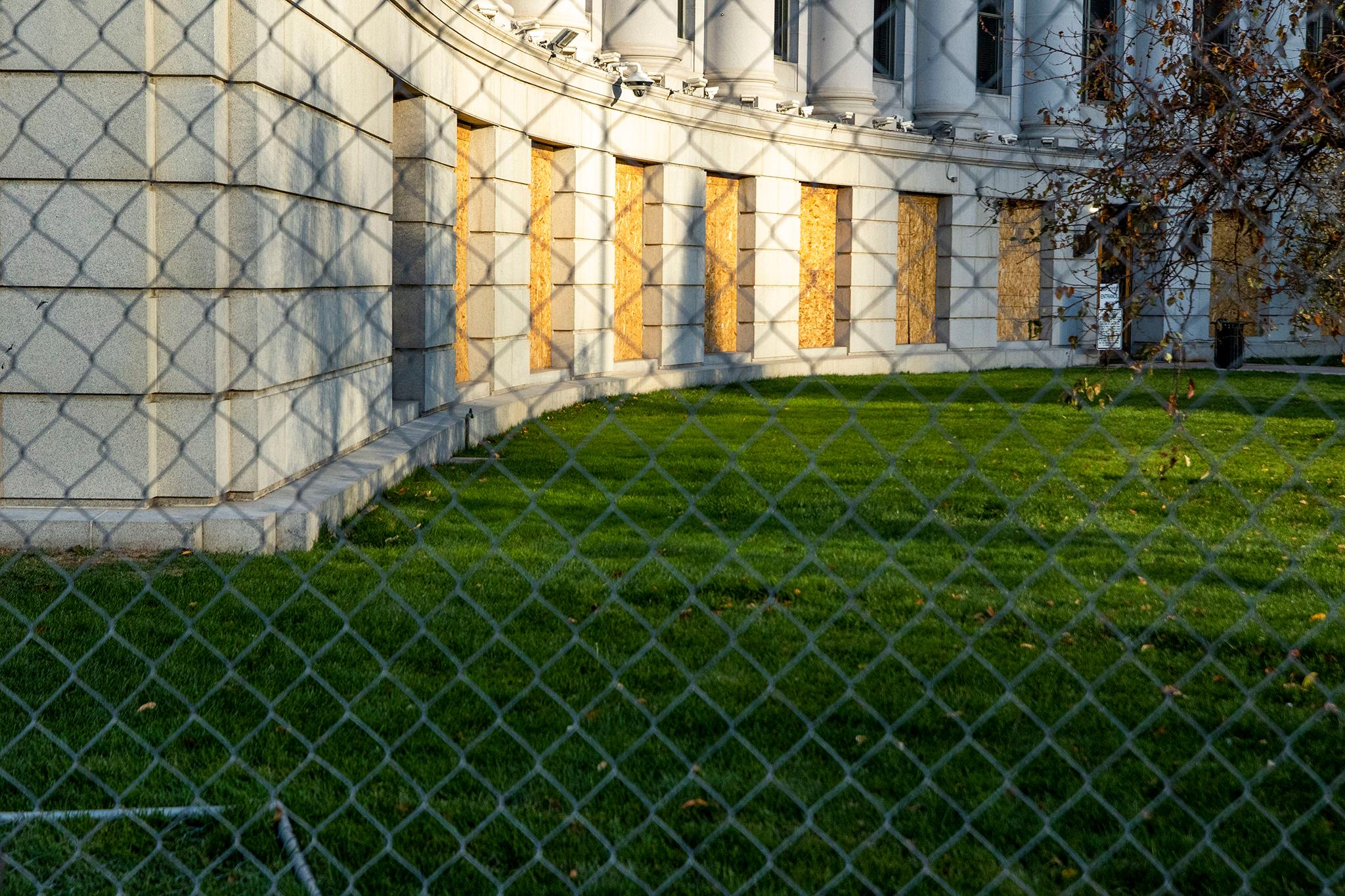UPDATE: On Nov. 9, 2020, the Denver City Council passed the city's 2021 budget.
Council President Stacie Gilmore congratulated the legislative body on passing a budget "in a year that we were met with a global pandemic, a civil rights movement and economic uncertainty that this city's general fund has never seen."
Council members voted 12 to 1 with Councilwoman Candi CdeBaca voting "nope."
"There is no question that the budget process is always a bear and it was really a tougher bear this year," said Councilwoman Robin Kniech.
Denver City Council will vote on Mayor Michael Hancock's $1.3 billion budget next Monday after a tug-of-war between the legislative and executive branches, and some disagreement among council members over repurposing law enforcement dollars for other things.
Between a pandemic-plagued 2020 that has sapped consumer spending and an economic forecast next year that only looks slightly better, the city faces $190 million in lost revenue in 2021. The new budget projects economic growth next year with revenue gains a little under 2018 levels.
But Denver's betting on a better public health outlook. Next year's growth hinges on "the rolling back of mass-gathering restrictions" and "an improved public health outlook among local consumers, businesses and tourists," the 800-page budget document states. The city and state are adding restrictions as COVID-19 cases spike locally, nationally and globally.
"It's very much a living document because you have to keep a vigilant watch on it," Denver Chief Financial Officer Brendan Hanlon told Denverite.
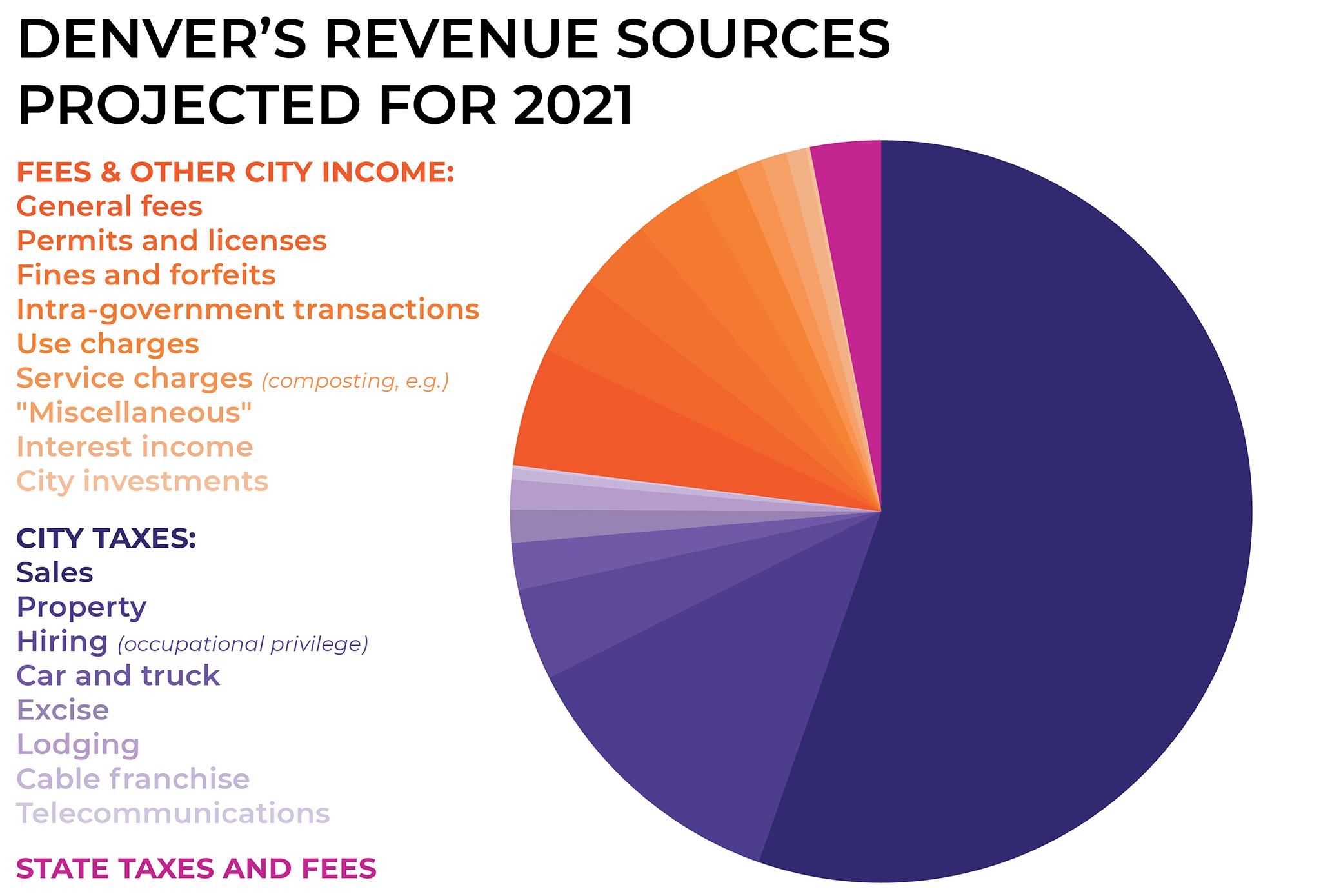
Through July, retail and restaurant spending was down almost 16 percent locally -- more than seven times the national rate, according to city documents. During the Great Recession, lodging taxes paid by hotels were down 18 percent. This year, they fell 66 percent.
Much of what happens next year depends on when a vaccine might be available and when the public will feel comfortable taking it, Hanlon said. For now, he and his team are predicting a rebound, albeit a slow one, in part because the city is starting from such a low floor.
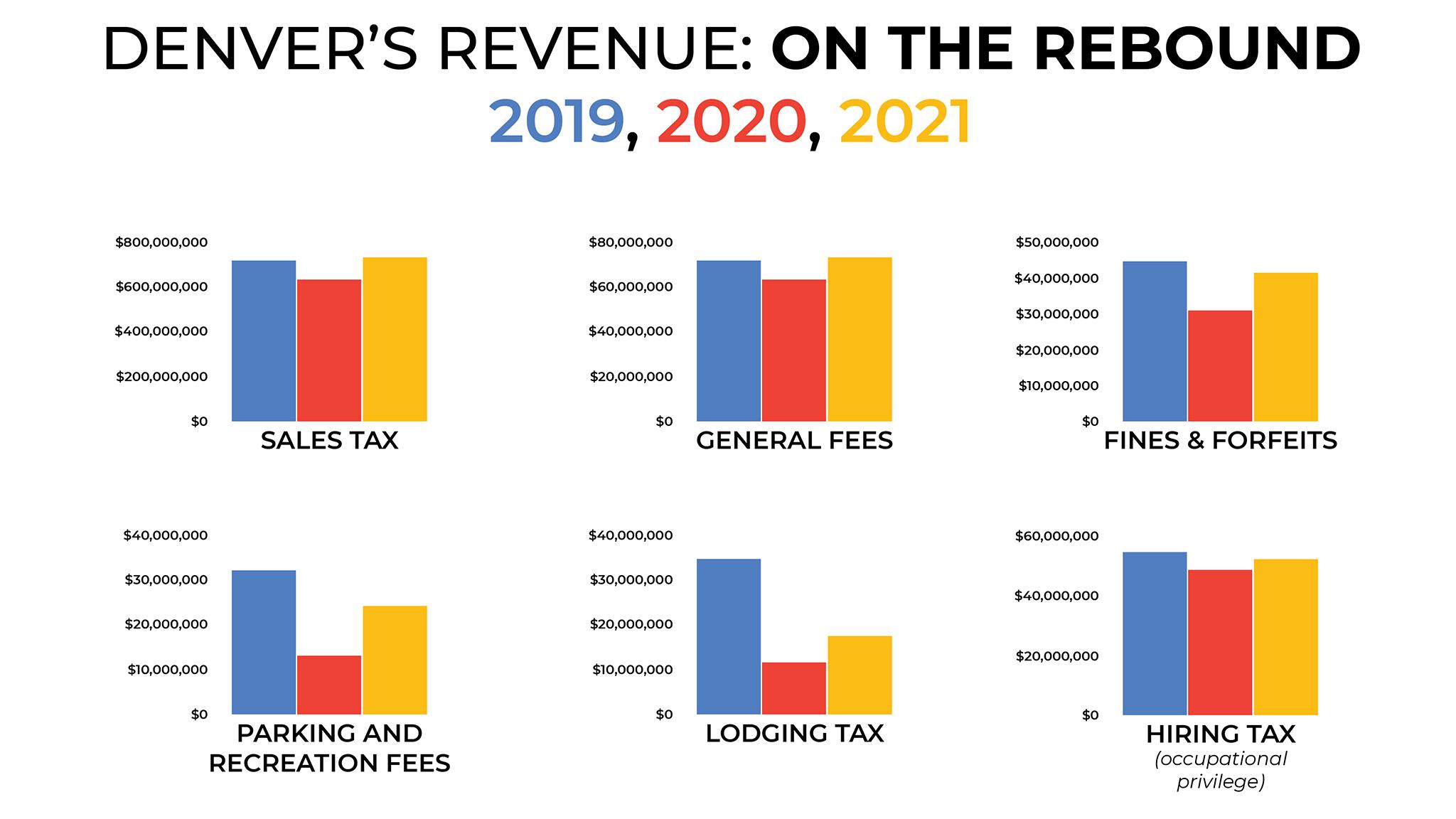
Even if things go generally well economically, not every sector will tag along. Construction and vehicle sales are expected to slow down, hampering Denver's income, which it uses to keep the city running.

Officials intend to bridge the gap with spending cuts to nearly every government department and by leaving hundreds of positions, recently vacated by early retirees, unfilled.
A combination of employee furloughs and higher fees for court documents and online transactions with the city will help make ends meet, too.

Higher property taxes will keep the city government running, with the median property owner's bill rising $14 thanks to additional property tax mills and natural market valuations, finance documents show.
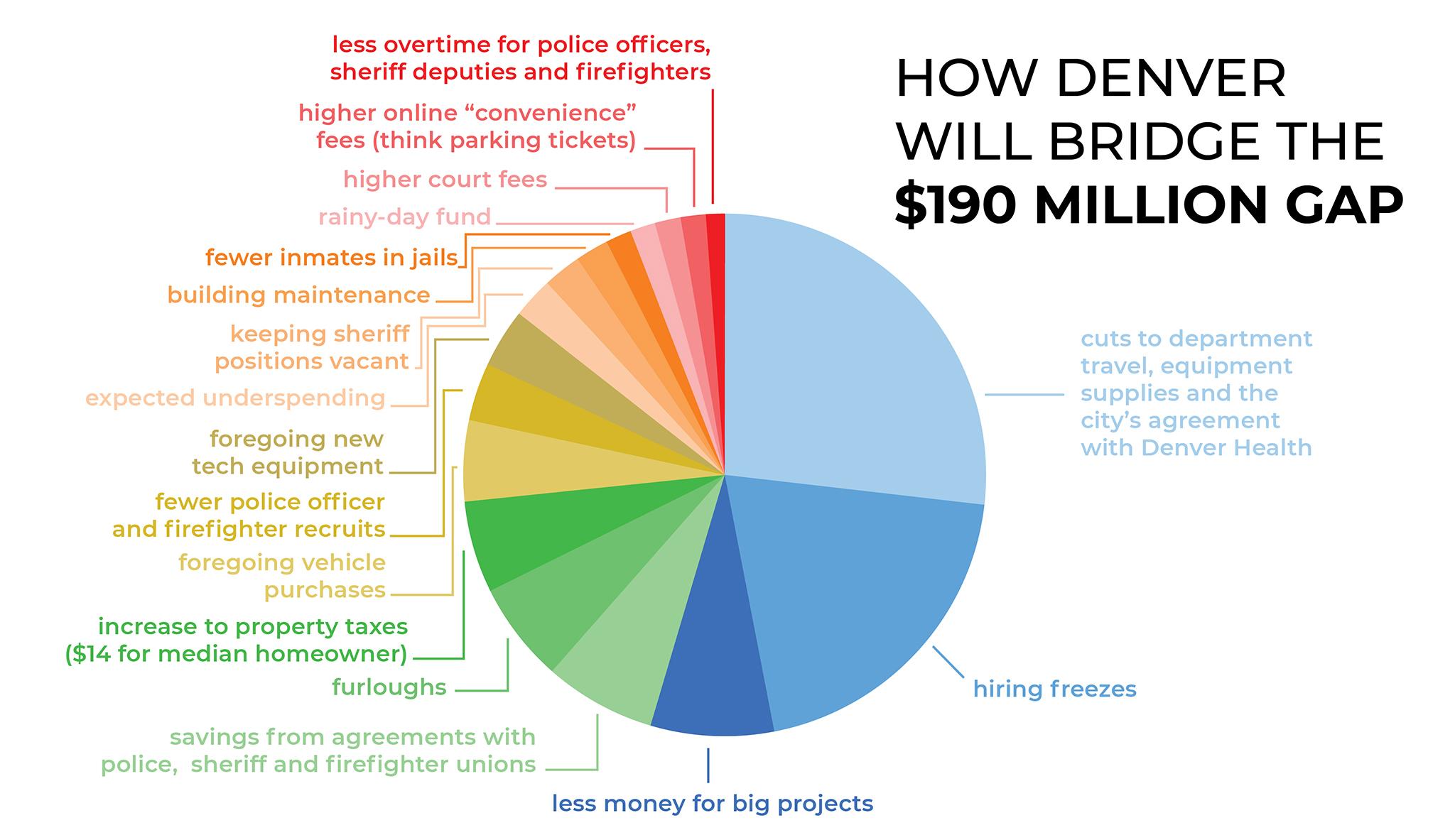
And while the city will continue to spend money on big capital projects, it will spend $15 million less in 2021 than it did in 2020.
Some departments, including the police, will see cuts. Others, like the city's housing department, will see increases.
Some city council members saw this budget season as a means for police reform following a local and national movement this year to repurpose law enforcement funding for mental health treatment and housing.
City council successfully pushed the mayor to fund Denver's STAR program, an alternative to the gun-and-badge approach to policing, at a higher level than he originally intended. The acclaimed program will get almost $3 million instead of the original $1 million.
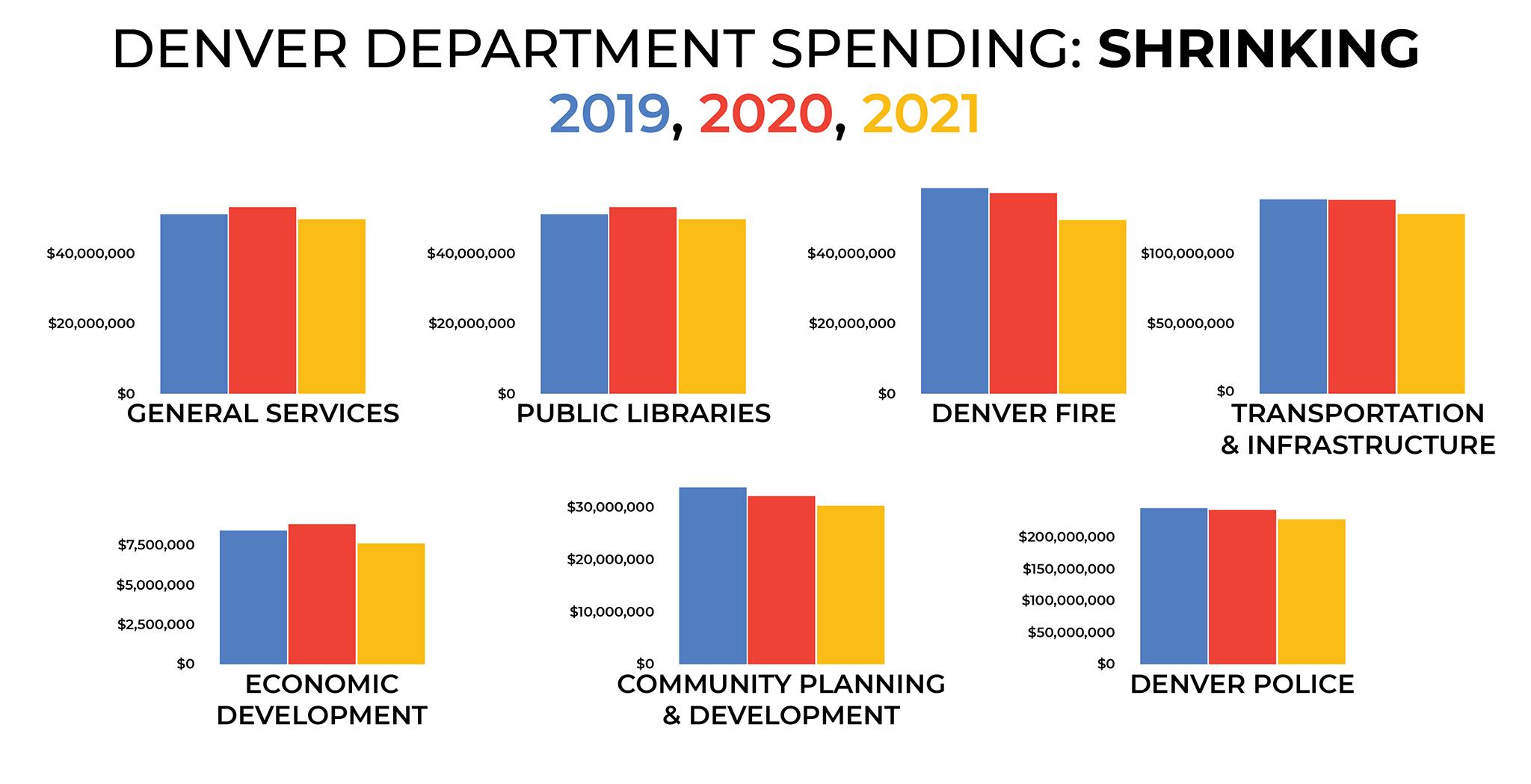
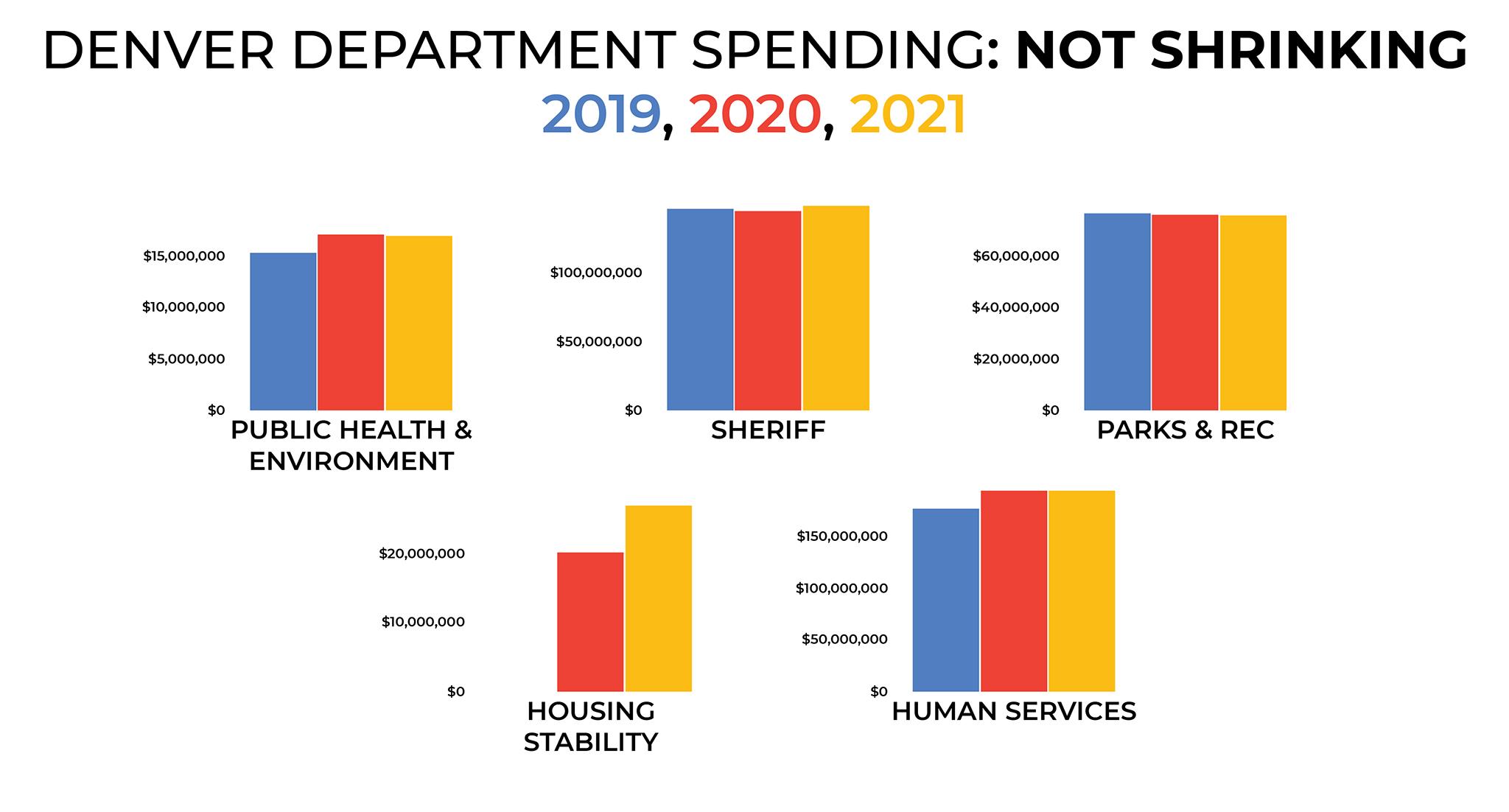
Five proposals by Councilwoman Candi CdeBaca on Monday aimed to repurpose tens of millions of dollars in police funding for things like rental assistance, trash service for the city's unhoused, and diversifying the marijuana industry.
"Pre-COVID Denver had an affordable housing crisis with disproportionate development of market rate and luxury housing," CdeBaca said during the meeting. "COVID's economic fallout has exacerbated housing insecurity for Denverites. Allowing the city to increase its affordable housing portfolio for severely cost-burdened households is essential to preventing future homelessness."
All of CdeBaca's colleagues voted down each of her budget amendments. Some members said they agreed with the premise but were not convinced the proposals would work.
While Hancock's budget reduces police recruit classes, he did not frame those cuts as "defunding the police." In a letter written to council members in anticipation of Monday's proposals, Hancock dug his heels in.
"I must stress that reducing investments in public safety will not produce better safety outcomes for Denver's community," Hancock wrote in a letter to city council members this weekend. "We have an opportunity to continue investments in alternative policing programs while continuing our commitment to transform our safety organizations."
Hancock's director of public safety has committed to reforming the department. Ten years of city budgets show spending on law enforcement has continually increased while violent crime has remained relatively static to population growth.
In a press release, the mayor highlighted $16 million in new spending on programs that treat the root causes of crime, including behavioral health interventions. Denver's police and sheriff budgets combine for about $378 million, or about 28 percent of the city's 2021 budget.
While the 2021 spending plan is characterized mostly by cuts, it includes "strategic" expansions, Hanlon said. Hancock allotted $27 million extra for employee pensions, housing, homelessness, social services, health, youth violence prevention and diversion programs to keep people out of the criminal justice system.
During the horse-trading of budget season, city council members received $5.2 million in funding for their priorities -- a small get in the scheme of things, but the largest ever concession in the city's mayor-strong system, Council President Stacie Gilmore said.
"I am beyond proud of the work that council has done together to ensure we continue to support our Denver residents during this challenging budget year," Gilmore said, adding that Pro Tem Jamie Torres played a key role. "We appreciate Mayor Hancock and his administration's support and look forward to deploying these services to the community in 2021."
Denver City Council will officially vote on the budget next Monday.

